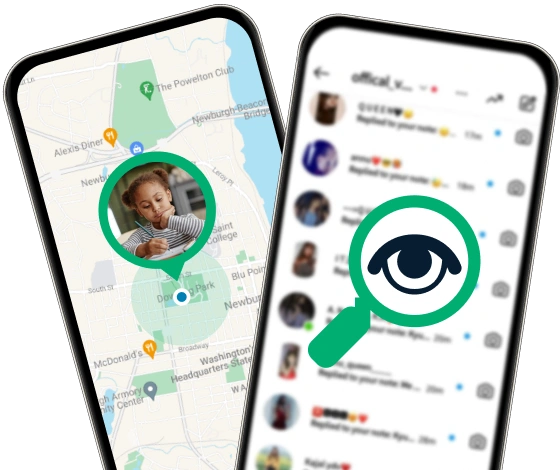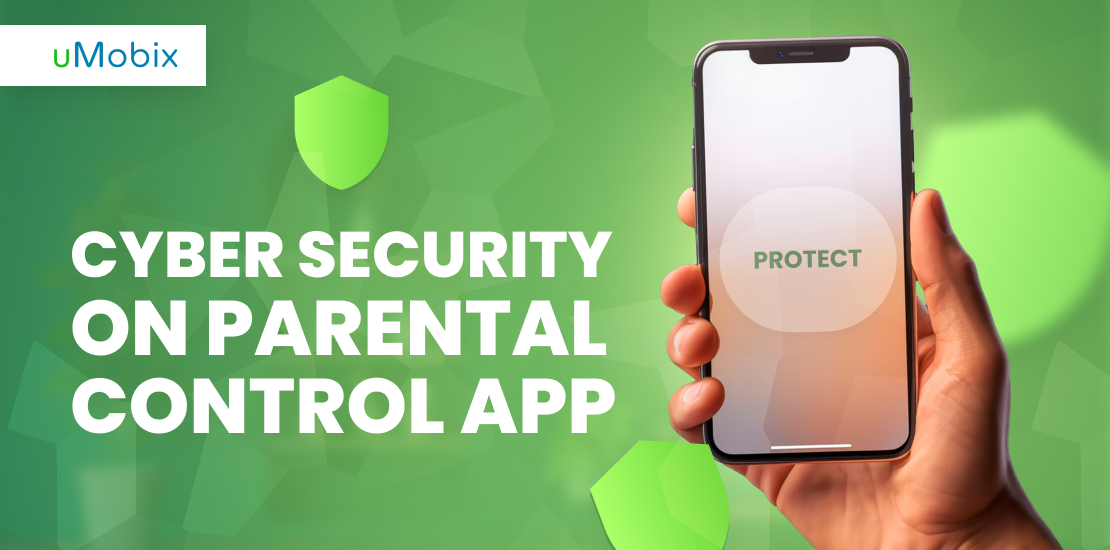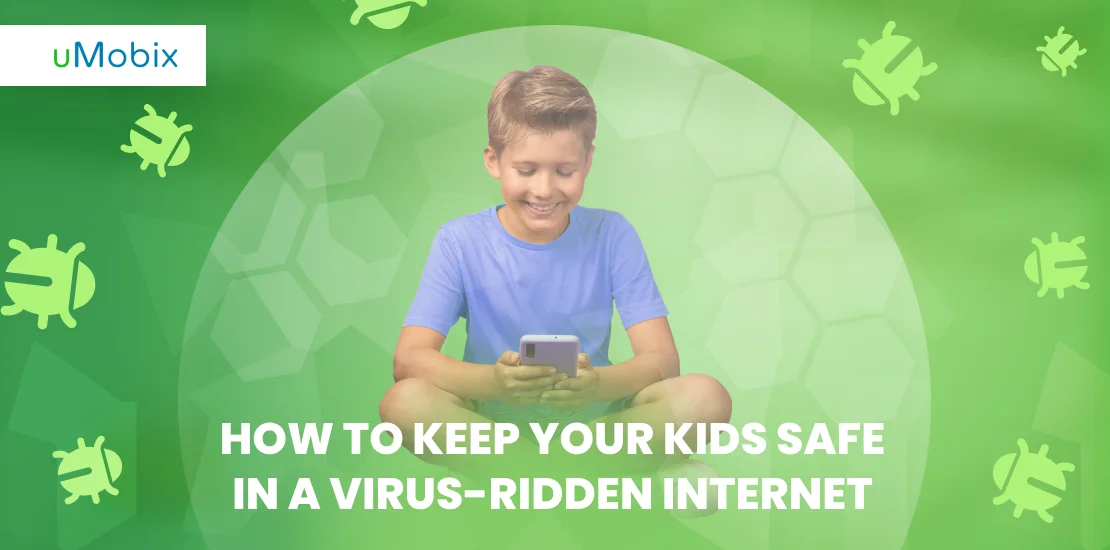Because of technological advancements, many schools have encouraged parents to promote the use of gadgets such as computers and phones among their children. However, this initiative was initially designed to gradually introduce children to the rapidly evolving digital realm. The pandemic caused school closures worldwide, but because learning must continue, some schools decided to implement eLearning.
This means that parents will have to provide ways for their children to learn via the internet, creating a new source of concern. The rise in cybercrime has been a concern for both the government and parents. As a result, the introduction of parental control apps such as uMobix was well received. Unfortunately, the parental control app market is rife with poor-quality apps. This has also been a cybersecurity issue for users, as their data and transactions are vulnerable to cyber-attacks.
Cybersecurity and Kids
As humans, our data is a private asset that we will go to great lengths to keep confidential. As a result, we do our utmost to ensure a solid cybersecurity network. This includes using sophisticated security tools to protect our phones, tablets, and computers. But, sadly, there’s another significant vector in our homes that we frequently ignore.
What happens when your child has access to the internet just as you start to believe that your cutting-edge security measures protect everything? Viruses are not the only internet problems we face in the modern world. Most phones now store sensitive information such as credit card details, contact information, user identities, etc. What happens if those details end up in the wrong hands?
Children and teenagers are frequently the most vulnerable victims of cybersecurity, yet they are compelled to spend more time online by digital growth. They are forced to employ new technological tools such as eLearning, social apps, cryptocurrency, and gaming platforms. As long as cybercriminals try to exploit consumer vulnerabilities, targeting children is likely to become more commonplace.
A survey by the Entertainment Software Association shows that over 90% of American children play video games—a staggering number of young users that provides hackers with ample opportunities to exploit. These cyberattacks can take many forms, like accounts getting hacked or cracked games packed with malware designed to steal private data from a device.
Despite the difficulties associated with cybercrime, parents can still stay one step ahead of the situation. It is critical for parents who are tech enthusiasts to educate their children on
common threats such as phishing and spamming. In addition, you should instruct them on how to avoid such dangers and what to do if they believe their cybersecurity has been breached.
Although being personally involved in their internet activities is the best approach to protect your kids from cybersecurity issues. This can be accomplished by using trusted parental control apps such as uMobix.
Problems and Cyber Threats That Prompt the Use of Parental Control Application
The internet is a fantastic space with many opportunities, but parents can’t turn a blind eye to its drawbacks. Some of the problems that have made parents opt for parental control apps include:
Internet Addiction
According to a survey, the average child spends 75 hours per week on the internet. It increases tolerance, requiring more and more time to achieve the same level of pleasure. Children become irritable and aggressive as a result. Unfortunately, it also has a social and medical impact on them, resulting in low social interaction and health issues such as psychological and vision problems.
The use of parental control apps enables parents to detect activities that have piqued their children’s interest and take appropriate action in real-time. They can also limit the time these children spend on the internet.
Cyberbullying
Cyberbullying, on the other hand, is a problem that most internet users face. It can happen to anyone, anywhere, at any time. Unfortunately, children are the most vulnerable demographic. According to reports, 36.5% of children have experienced cyberbullying in some form or another. This cyberbullying can be racist jokes, hateful comments, or even online threats. Unfortunately, most children hesitate to ask for help and quietly suffer in silence.
Some experts believe that children are sometimes bullied on the internet and forced to start bad habits. Parental control apps are helpful tools for parents to spot and stop such dangers before they affect their kids.
Adult Website Browsing
According to internet survey results, the most visited websites display adult content, and experts believe most website visitors are teenagers. In addition, 53 percent of children aged 10 to 15 have seen adult content accidentally or on purpose. While some may think it’s not a big deal, adult websites are ranked as the third most serious health concern for children. It disrupts their thinking and even their social interactions.
Parents have adopted parental control apps to monitor website history to detect inappropriate websites that their children may visit or prevent their children from visiting such websites.
Common cybersecurity flaws with parental control apps
Some parental control apps, particularly the early generation, have flaws that leave them susceptible to cross-site scripting (XSS) attacks. They may function as good surveillance apps because you can monitor your children’s activities, but your data may be made public due to the type of server these parental control apps use.
Abusing Privileged Access
Cybersecurity experts have looked at some parental control apps and found some security flaws related to the misuse of privileged access to the targeted device. This privileged access could put the monitored devices and the children who use them at risk.
Sadly, some of the parental control apps in the market today are not built with the children’s privacy in mind. The parents get access to some of their personal lives that have nothing to do with protection from cybercrimes or other environmental factors.
Exposure of User Financial Data
Some so-called “parental control apps” are designed by developers with ulterior motives or are vulnerable to cyberattacks. However, some top parental control apps like uMobix have SSL certificates.
SSL is a public key platform that employs RSA encryption and security certificate authentication techniques. It aids in the establishment of a secure connection between the server and the client via the secure HTTPS protocol. It is an excellent choice for safeguarding sensitive information such as credit card and client contact information. The public key infrastructure employs public and private keys, which are used to decrypt and encrypt data.
Third-party access to the targeted device information.
Some cybersecurity experts conducted a thorough investigation of certain parental control apps. According to their findings, while some of these apps may be capable of adequately monitoring your children’s activities, they are not truly safe in the sense that they are not up to par in terms of security. Some parental control apps on the market are created by providers who are only interested in brand promotion and have paid little or no attention to access security. This means that if your phone is found, anyone with access to it can use it without a password.
This will give them access to sensitive information you may not want a third party to see.
Transaction Data
Some platforms make transaction data public. However, some established parental control apps use credit card safe security metrics. The credit card safe security metrics are designed to protect card data from cyber-attacks. You can keep your data secure by using these security metrics, protecting your transaction data, and avoiding costly data breaches.
Statistic
In 2021, the approximate number of cyberattacks and data will increase by 15.1% from last year. Over the next three years, the specialists from ThoughtLab forecast a high rise in attacks from social engineering and ransomware. It is caused by the situation of the nation-states and cybercriminals growing more sophisticated. The leading causes of these risks will come from misconfigurations, errors connected with the human being, poor maintenance, and unknown assets.
With the increased sweats to combat security pitfalls, numerous canvasses by ThoughtLab see several reasons for alarm. 44 of the directors surveyed said their growing use of mates and suppliers exposes them to significant security pitfalls. Some 30 said their budgets are insufficient to ensure proper cybersecurity, while several refocused that the culprits are more funded. A quarter of all the repliers said the confluence of digital and physical systems, similar to the Internet of effects bias, has increased their security pitfalls. Findings include:
- Keep in mind that 50% of product businesses in the USA have a strict cybersecurity plan.
- 32 of them have no changes connected with their goal of cybersecurity. The situation continues from the moment the epidemic and operations of the mongrel type.
- The highest incidence of cyber-attacks is malware (22%) and phishing (20%).
- Cybercrime brings U.S. businesses further than $6.9 billion in 2021, and only 43 businesses feel financially set to face a cyber-attack in 2022.
What Makes uMobix Different from Other Parental Control Apps?
Your data security is our top priority. As our industry innovates, customers are offered newer and more advanced monitoring features. As a result, user questions about how their data is being secured are becoming more and more frequent. uMobix strives to be a leader in the development of monitoring technologies and in how we safeguard the sensitive data these technologies access.
We use state-of-the-art encryption utilities and safeguards to protect all customer data from third parties. This includes transaction data, customer financial data, and target device data. Furthermore, only the account holder can view target device data through their online dashboard.
Businesses in our industry have access to large amounts of sensitive personal data. This naturally makes them a target to hackers and hostile third parties. uMobix has learned from the mistakes of our competitors and implemented security protocols to ensure our customer data is well protected.
Verdict
Using a parental control app to study and monitor your child’s internet activity is critical. First, however, you should use a dedicated parental control app equipped with advanced cybersecurity features. This will protect your data or your children’s data from unauthorized access or cyber threats. In addition, an excellent parental control app should have basic features, including encrypted payment methods and security against third-party access.

Latest posts
- 10 Best Apps for Parents to Monitor Social Media: 2026 Guide
- Complete List of Keywords to Block for Parental Control
- Does Telegram Notify Screenshots? Everything About Screenshot Detection
- How to Find Someone’s Deleted Instagram Posts: Complete Guide
- Family Tracking App by uMobix: Keep Loved Ones Safe




